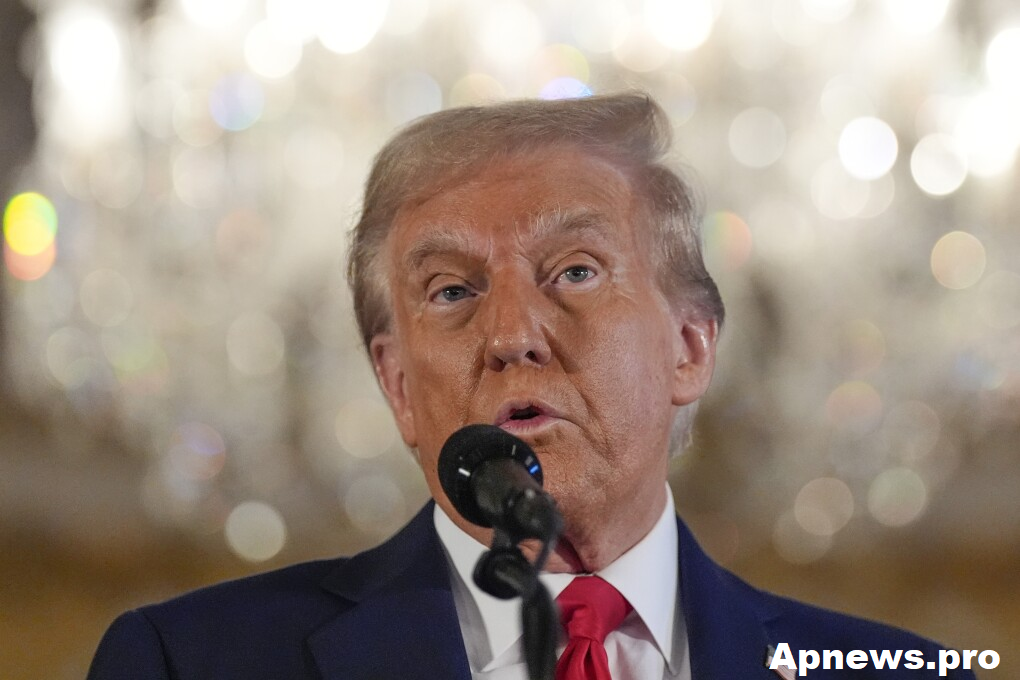Former President Donald Trump has sharply criticized a recent federal court ruling on tariffs as “politically motivated” and is urging the U.S. Supreme Court to intervene swiftly. The decision, which struck down key aspects of his administration’s trade policies, has reignited debates over presidential authority, economic protectionism, and judicial overreach.
Trump, who has long championed aggressive trade measures—including tariffs on China and other nations—called the ruling a “disgrace” and an attack on American workers. His response underscores the high-stakes legal battles surrounding his economic policies, which remain a cornerstone of his potential 2024 presidential campaign.
The Court’s Controversial Ruling
The case in question centers on Trump’s use of Section 232 of the Trade Expansion Act of 1962, which allows the president to impose tariffs on national security grounds. During his presidency, Trump levied steep tariffs on steel and aluminum imports, arguing that reliance on foreign metals threatened U.S. industrial and defense capabilities.
However, a federal appeals court recently ruled that the administration overstepped its authority, declaring that the tariffs were not sufficiently tied to genuine national security concerns. The court suggested the move was more about economic protectionism than defense, a stance Trump vehemently rejects.
“This was a purely political decision by activist judges who want to undermine American sovereignty,” Trump said in a statement. “These tariffs saved countless jobs and brought back our steel and aluminum industries. The court has no right to second-guess a president on national security.”
Trump’s Call for Supreme Court Action
Trump is now urging the Supreme Court to take up the case immediately, arguing that delays could harm U.S. industries and embolden foreign competitors. Legal experts are divided on whether the high court will intervene, but the case could set a major precedent on presidential trade powers.
“If the Supreme Court doesn’t act fast, it will send a message that America is weak on trade,” Trump warned. “China and other countries are laughing at this ruling. We need strong, decisive leadership—not judges playing politics.”
His appeal to the Supreme Court reflects a broader strategy of framing judicial setbacks as partisan attacks, a theme he has frequently used to rally his base. Critics, however, argue that the court’s decision was a necessary check on executive overreach.
The Broader Implications for Trade Policy
The ruling has significant implications for future trade policies, particularly as the Biden administration weighs whether to maintain or modify Trump-era tariffs. While President Biden has kept many of the tariffs in place, his administration has faced pressure from both free-trade advocates and protectionists.
If the Supreme Court upholds the lower court’s decision, it could limit how future presidents use Section 232, potentially requiring stronger justifications for tariffs. Conversely, a reversal would reinforce expansive presidential powers in trade matters—a scenario Trump and his allies are pushing for.
Political Reactions and 2024 Ramifications
The tariff debate is also shaping up as a key issue in the 2024 presidential race. Trump has repeatedly touted his trade policies as evidence of his “America First” agenda, contrasting them with what he calls Biden’s “weak” approach.
Republican lawmakers have largely backed Trump’s stance, with several issuing statements condemning the court’s decision. “This is judicial activism at its worst,” said Sen. Josh Hawley (R-MO). “The courts have no business dictating trade policy.”
Meanwhile, Democrats and free-trade advocates have welcomed the ruling. “Tariffs should be about real national security, not political favors for certain industries,” said Rep. Ro Khanna (D-CA). “This decision reaffirms the rule of law.”
Conclusion: A High-Stakes Legal and Political Battle
As the legal battle unfolds, the case could become a defining moment for U.S. trade policy and presidential authority. Trump’s forceful response ensures that tariffs will remain a hot-button issue, especially as he positions himself for another White House run.
The Supreme Court’s decision—if it takes the case—will have far-reaching consequences, not just for trade but for the balance of power between the executive and judicial branches. For now, Trump’s call for swift action signals his determination to keep his economic legacy intact while rallying supporters behind his vision of a protectionist America.
One thing is certain: The fight over tariffs is far from over, and the outcome could reshape U.S. trade policy for years to come.



